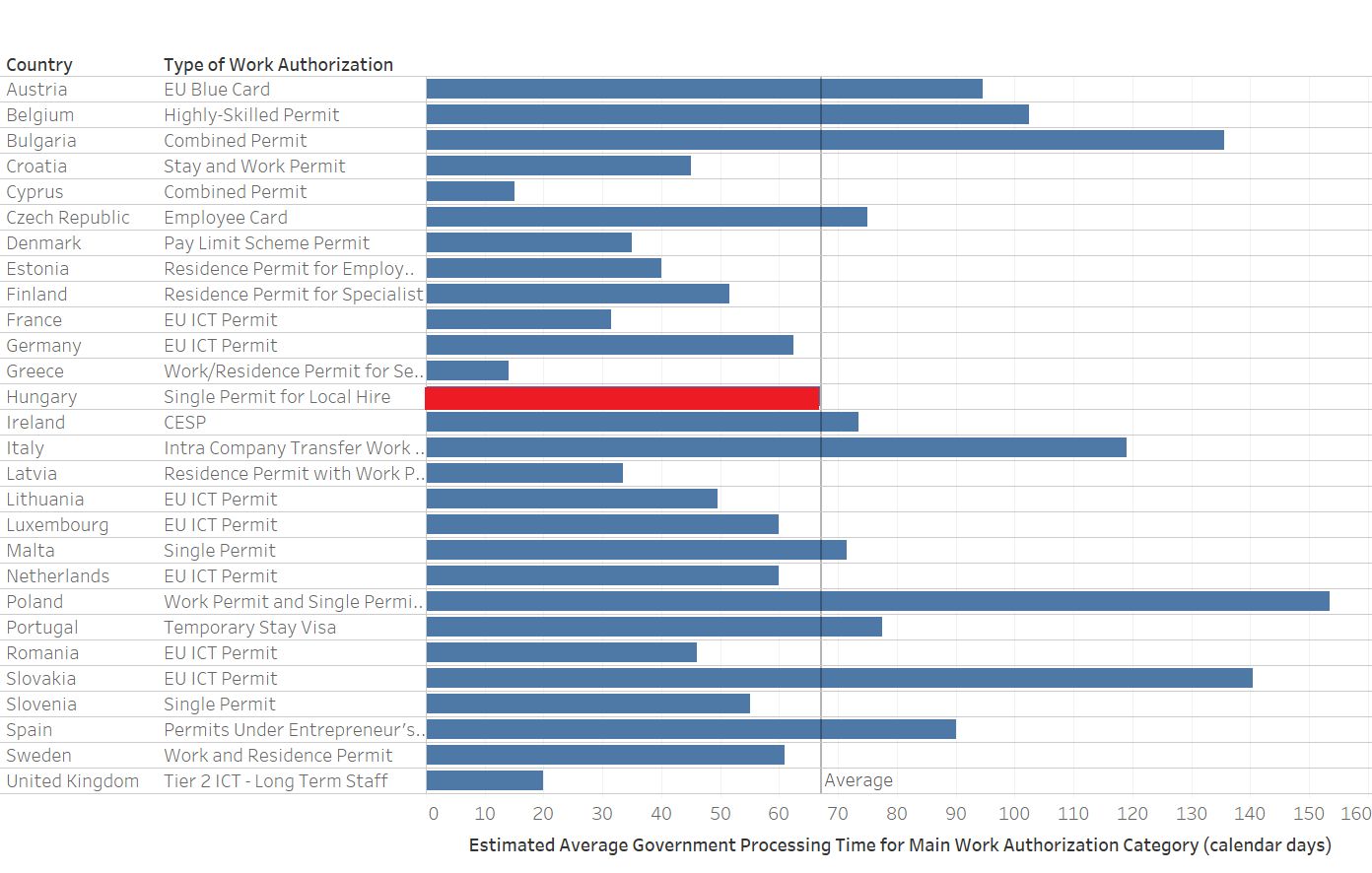At a Glance
- Effective January 1, 2020, the minimum monthly wage in Hungary has increased to HUF 161,000, or HUF 210,600 for positions requiring at least secondary education, up eight percent from 2019.
- Foreign workers typically receive salaries well above this level, since they are required to receive at least 80 percent of the national average salary for the relevant position. Employers are nevertheless advised to check foreign workers' salaries to ensure compliance.
The situation
Effective January 1, 2020, the minimum monthly wage in Hungary has increased to HUF 161,000, or HUF 210,600 for positions requiring at least secondary education, up eight percent from 2019. Salary requirements for foreign workers are affected as follows:
| Category | Prior salary requirement | New salary requirement |
|
EU nationals |
|
|
|
Short-Term Work Permit |
|
|
|
Single Permit for Local Hire |
|
|
|
EU Intracompany Transferee (ICT) Permit (Single Permit for Intra-Company Transfer) |
|
|
|
EU Blue Card |
|
|
The exchange rate at the time of publication of this alert is 1 HUF to 0.003 USD.
A closer look
- Existing employees. Employers of EU nationals and foreign nationals currently under a Short-Term Work Permit or Single Permit for Local Hire must increase foreign nationals' salaries to comply with the new rule.
- Initial and renewal applications. Employers of foreign nationals seeking to obtain or renew a Short-Term Work Permit or Single Permit for Local Hire on or after January 1, 2020 must increase foreign nationals' salaries to comply with the new rule. Immigration applications that do not meet the minimum salary will be refused.
- Pending applications. Employers of foreign nationals with pending Short-Term Work Permit or Single Permit for Local Hire applications as of January 1, 2020 must increase foreign nationals' salaries to comply with the new rule. Immigration applications that do not meet the minimum salary will be refused.
Reminders on other requirements
- Benefits and allowances. As before, benefits and allowances cannot be included in the minimum salary calculation.
- Net amounts. Net amounts may change based on correction factors (like family allowance, company cafeteria etc.) which depend on personal conditions and company policies.
Background
Increases between eight and 25 percent are common in Hungary. Typically, high-skilled salary levels are increased more than low-skilled salary levels. Eastern European countries, such as Hungary, historically had lower minimum salary requirements for foreign workers but have recently increased these levels more aggressively than in Western Europe, in line with fast-growing economies.
Looking ahead
In October 2019, the Hungarian government announced a plan to
resolve staffing issues – which were causing immigration and
work start delays – in all government departments. However,
the delays have not subsided and the main work authorization still
takes an average of 67 calendar days to obtain a Single Permit for
Local Hires, which is in the middle range as compared to work
authorization processing times in the European Union:
Despite the widely publicized anti-immigration stance of the Hungarian government, thus far no explicit measures have been taken limiting corporate immigration into Hungary.
The content of this article is intended to provide a general guide to the subject matter. Specialist advice should be sought about your specific circumstances.
